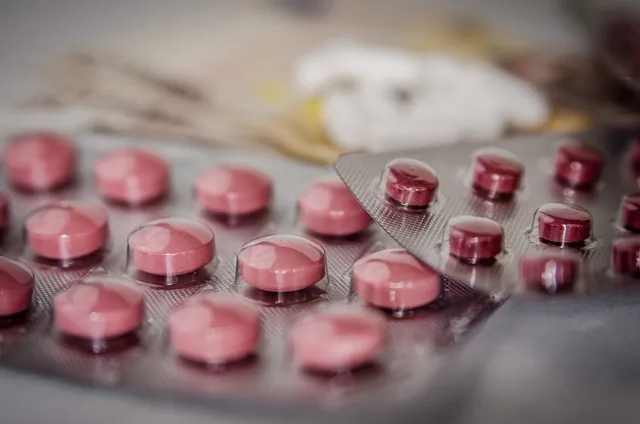When you undergo a urinalysis, one of the parameters often measured is the presence of nitrites in your urine.
This can raise questions and concerns, as many people are unsure about what nitrite in urine means.
Nitrites in urine can be a sign of an underlying health issue, and understanding their significance is crucial for early diagnosis and treatment.
In this article, we will explore what nitrite in urine means, its potential causes, symptoms, and the importance of addressing this issue promptly.
What Does Nitrite in Urine Mean
Nitrite in urine is a clear indicator of a potential urinary tract infection (UTI).
UTIs are commonly caused by bacteria, with Escherichia coli (E. coli) being the most frequent culprit.
These bacteria convert nitrates present in your urine into nitrites through a process called nitrate reduction.
When nitrites are detected in your urine, it suggests that bacteria are present in your urinary tract, causing an infection.
Causes of Nitrite in Urine
As mentioned, the most common cause of nitrite in urine is a UTI.
However, several factors can lead to the development of a UTI and the presence of nitrites:
Bacterial Infections – E. coli and other bacteria can enter the urinary tract through the urethra and multiply in the bladder, leading to an infection. This can occur more frequently in women due to their shorter urethra, which allows bacteria easier access to the bladder.
Urinary Retention – Incomplete bladder emptying, often seen in conditions like benign prostatic hyperplasia in men or bladder dysfunction, can lead to stagnant urine, providing a breeding ground for bacteria.
Catheter Use – Individuals with urinary catheters are at a higher risk of UTIs and nitrite presence in their urine, as catheters can introduce bacteria into the urinary tract.
Sexual Activity – Sexual intercourse can introduce bacteria into the urinary tract, making women more susceptible to UTIs. This is often referred to as “honeymoon cystitis.”
Symptoms of a UTI
It’s important to recognize the signs and symptoms of a UTI, as these often accompany the presence of nitrite in urine:
Frequent and Painful Urination
Burning Sensation During Urination
Cloudy, Bloody, or Foul-Smelling Urine
Lower Abdominal Pain or Discomfort
Fatigue and General Malaise
If you experience these symptoms in conjunction with a positive nitrite test, it is advisable to consult a healthcare professional promptly.
Why Addressing Nitrite in Urine is Important
Neglecting a UTI can lead to several complications.
When left untreated, a simple UTI can progress to a kidney infection (pyelonephritis), which can be a serious and painful condition.
Moreover, recurrent UTIs can damage the urinary tract and potentially lead to kidney damage in the long term.
In pregnant women, untreated UTIs may increase the risk of preterm labor and low birth weight in infants.
Treatment and Prevention
The good news is that UTIs are typically treatable with antibiotics.
Your healthcare provider will prescribe an appropriate antibiotic based on the type of bacteria causing the infection.
It’s essential to complete the entire course of antibiotics to ensure the infection is fully eradicated.
Preventing UTIs can be achieved by adopting the following measures:
Stay Hydrated – Drinking plenty of water helps flush bacteria out of the urinary tract.
Urinate Regularly – Don’t hold in urine for extended periods, as this can allow bacteria to multiply.
Wipe from Front to Back – After using the toilet, women should wipe from front to back to prevent the spread of bacteria.
Urinate Before and After Sexual Activity – This can help flush out any bacteria that may have entered the urinary tract during intercourse.
Bacteria Responsible for Positive Nitrite in Urine
Several types of bacteria can lead to positive nitrite results in a urine test.
The most common culprit is Escherichia coli (E. coli), but other bacteria may also play a role.
Here are some of the key bacterial species responsible for causing positive nitrite in urine:
Escherichia coli (E. coli) – E. coli is the primary pathogen responsible for urinary tract infections.
It is a common inhabitant of the intestines but can find its way into the urinary tract, leading to infection.
E. coli possesses the enzyme nitrate reductase, which converts nitrates into nitrites, resulting in a positive nitrite test.
Klebsiella – Klebsiella species are also known to cause UTIs. They can produce nitrite when infecting the urinary tract.
Proteus – Proteus bacteria are notorious for causing UTIs, especially in individuals with urinary catheters.
They are one of the leading nitrate-reducing bacteria, contributing to positive nitrite readings.
Enterobacter – Enterobacter species are opportunistic pathogens that can lead to UTIs.
They possess the ability to reduce nitrates to nitrites, causing a positive test result.
Pseudomonas – Pseudomonas species, though less common, can also be responsible for UTIs and positive nitrite tests.
They are often associated with catheter-related infections.
Conclusion
Nitrite in urine is a crucial indicator of a potential urinary tract infection.
Understanding its meaning, the associated symptoms, and the importance of prompt treatment is essential for maintaining urinary tract health.
If you suspect a UTI, consult a healthcare professional to receive the necessary treatment and prevent complications.
By addressing the issue early, you can ensure a swift recovery and maintain your overall well-being.







